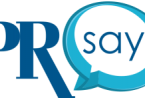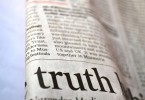Confession: my name is Steve, I am 38-years-old and, and … I am a public relations professional.
Sixteen years ago I thought I was doing a filthy job. I was a journalist: knocking on the doors of just-bereaved parents, phoning ministers of religion for comments on the sin stories I was about to break, stitching up civic dignitaries by quoting them well out of context.
In the past few weeks, given what has happened with U.K. newspaper The Independent’s sting on PR agency Bell Pottinger, I could be forgiven for thinking my hands are dirtier now than they were back then. PR professionals have long faced questions about the moralistic implications of what they do, but rather than the mysteries of the “dark arts,” observers’ thoughts have been drawn to misconceptions of illicit foulness dripping from our greedy hands.
All of which is, in my experience, untrue. In fact there’s a very British word for it: bollocks.
Sure, some PR professionals have always been willing to take on lucrative contracts from dubious sources. None of us are utterly holy, or at least if any of us are I haven’t met them yet. We have all, if we’re honest (and we should be) told untruths — or been extremely liberal with the truth — to protect the interests of clients.
But Pottingergate has ruffled the feathers of many agency top brass and senior managers. The reason is this: we had enough on our plates with the fact that if PR agencies do not fundamentally modernize the basis of their commercial success, they will die. Now we have another challenge: not only must we modernize, we must also sanitize.
Where Should the Line Be Drawn on Ethics?
A lot of senior, well-paid people in public relations have tried to wear the ethical badge in recent years. Without ethics, we are unable to continue to operate in a transparent age when clients require a responsible approach to communication, they say. They’re right, but ethics is a relative term, certainly in the public relations field. The industry organizations have rightly stood up and been counted on this, but PR professionals must figure out themselves where the line must be drawn on what is ethical and what isn’t. Whereas the British media at the moment faces the threat of imposed legislation to govern its conduct, the PR industry must develop a form of self-regulation.
My bet is that the answer will be driven by market forces rather than a consensus view on ethics.
Ethical communication must be accurate, fair, balanced, in the overall best interests (and yes, we’ve been talking about that one since the days of Bearnays) of the audience and be as transparent as is possible. But remember that ethics is a moral philosophy. PR alone cannot ascertain what is ethical; we have to adhere to an overarching principle in how we run our businesses and communicate.
Dramatic changes in media and technology are forcing, not just the risk of getting caught by a newspaper sting. Media is rapidly becoming two-way: it is not so much the immediacy of news that puts PR under the lens as it is the ability and willingness of a watching audience to scrutinize our behavior.
Time for Ethical Entrepreneurs
Where there are such sweeping changes in an industry, there are surely huge opportunities. I do not expect the large agencies like Bell Pottinger to be swept aside by the gold rush fever of Honest John Communications Incs. starting alternative ethical agencies. But equally, the firms that are the most agile are the ones that will best respond to the challenge. Startups are likely to be amongst them, as there’s no more agile a business than a start-up with no baggage.
That challenge is in parallel to the modernization challenge, though. If what I hear is accurate, all large agencies are desperate to modernize towards businesses that are less reliant on the chance game of media relations-centric PR and doing all they can to align skills and services not just to clients’ needs but to the role PR needs to perform in the future. Ethical commercial behavior and ethical communications techniques are a big part of that, but there not a challenge that has just burst onto the scene because Bell Pottinger went a bit, well, potty.
Many agency bosses have seen a slow-down in growth of conventional PR services rooted in media relations. It’s not just about the recession; it’s about media change needing to be reflected in PR change. Respond or die is the calling, but above all keep your head wedged between your buttocks at your peril.
There are fast-growth opportunities for wily entrepreneurs, but they lie in figuring out how PR can be of tangible commercial value in a fragmented media world, with ethical operation a fundamental thread.
Will We Make Money from It?
I bloody hope so. For me, this all depends of moving to sustained communications initiatives rather than being over-reliant on projects in an age of experimentation as media changes. We’ve got to figure out how best to measure the sustained value of what we do with a pound (or dollar) sign in front of it.
Whereas the rise of social media specialist agencies, with their own particular flavor of bollocks, has largely been based on the success of projects (if you follow what they publicize as their best work), we’ve got to be brave enough to design and build communications programs that stand the test of time, that are undertaken ethically and that strike the right balance between the interests of audience and client.
It won’t be easy. But we’ve had it too easy for too long.
It will require bravery, but change on this scale is not for the faint-hearted. And where bravery is combined with commercial acumen, there are likely to be winning commercial formulae.
In the meantime, we must cleanse ourselves of any sign of ethical wrongdoing with a thorough scrubbing. And on that note, I’m off to have a think in the bath.
Steve Earl is managing director of London-based Speed Communications. He blogs about PR at Earlin’ PR Abuse.







[…] Time for PR to Cleanse Itself of Ethical Transgressions (prsay.prsa.org) […]